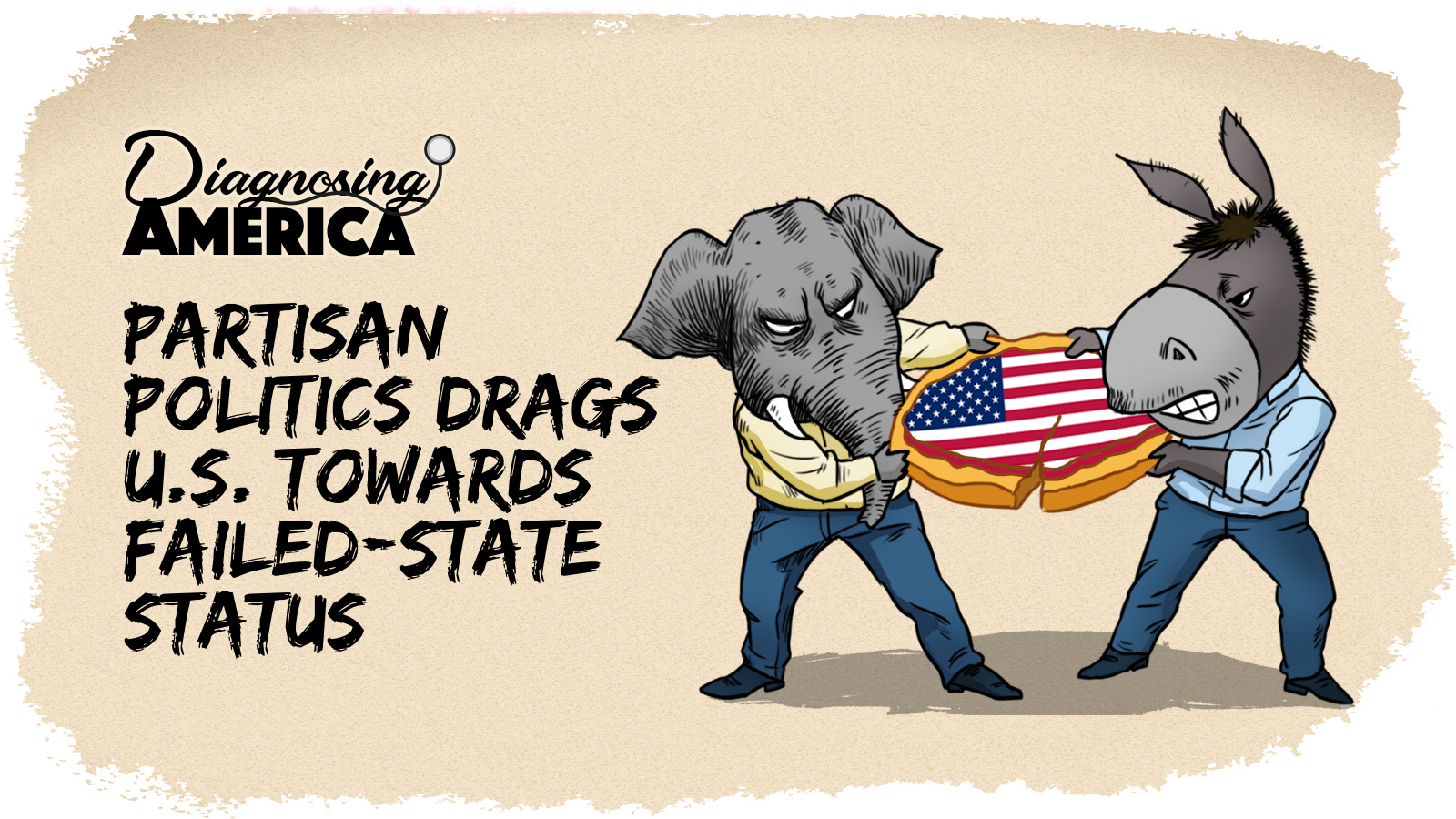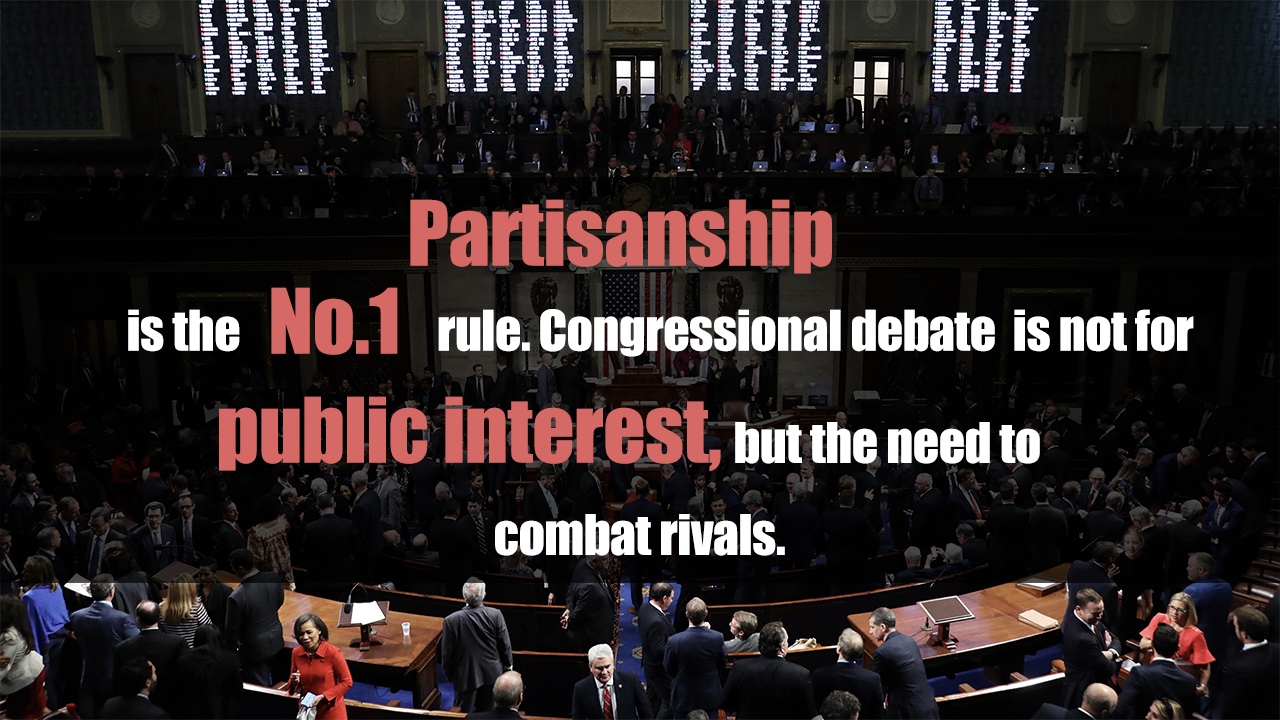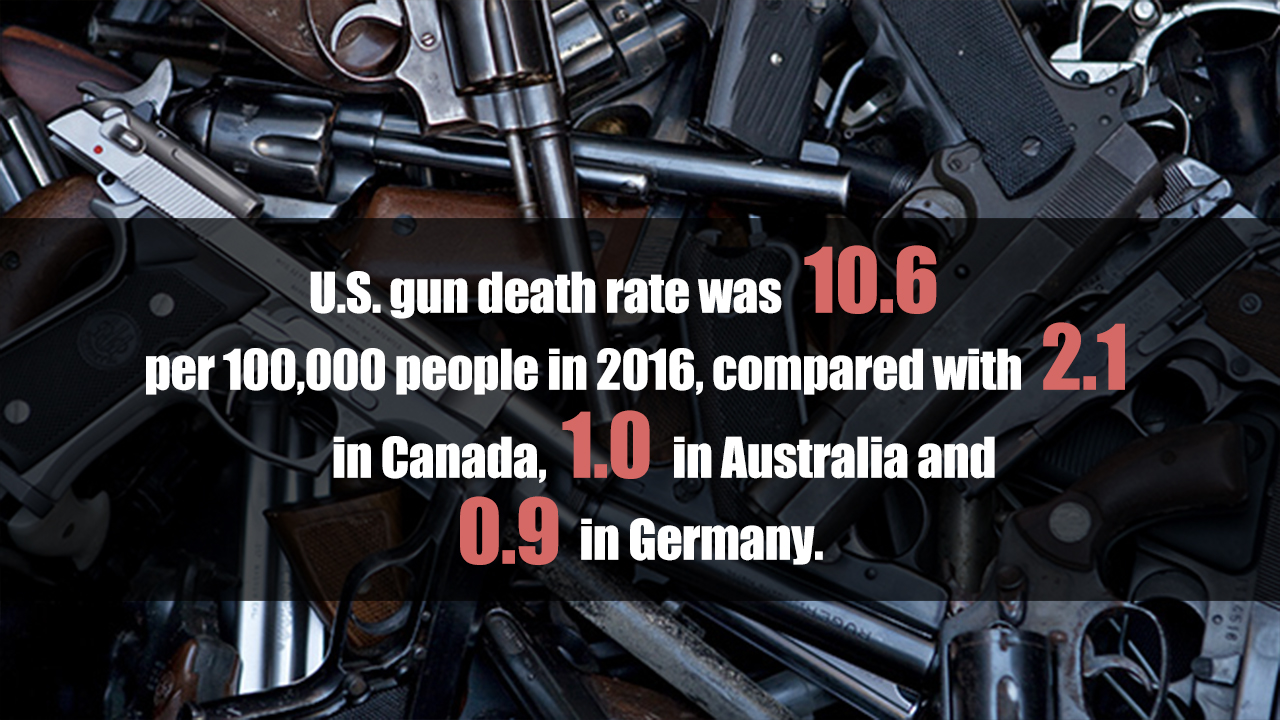
Editor's note: Waging tariff fights, quitting international bodies, sowing dissent between the EU and Russia, confronting China on all fronts, the United States is rewriting its global role under Donald Trump. Is the country becoming a source of unrest in the world? CGTN Insight introduces Diagnosing America, a mini-series investigating what lies behind the United States' repeated challenges to the international order. The second episode is on U.S. partisan politics.
The United States promotes itself as a "bastion of democracy." Invading Iraq, steering the Arab Spring, and passing a pile of laws on Hong Kong, Tibet and Xinjiang, Washington has repeatedly sought to "safeguard democracy" in countries across the globe. But ironically, it is the American system that is turning the world's "most developed democracy" into a failed state.
Party politics is how democracy operates in the United States. It is designed to give different political factions an opportunity for a fair say on the country's policies. But in reality, the battle for seats in the legislative body is making politics a weapon in a bitter partisan war. Decades of training have made both Democrats and Republicans skilled players in the game – partisanship is the No.1 rule. Congressional debate is not for the sake of the public interest, but for the need to combat rivals.

Administrative inefficiency
Political polarization is the inevitable result. This explains Washington's slow response to issues requiring immediate solutions like COVID-19. The World Health Organization declared the outbreak a public health emergency of international concern on January 30, but it was not until 43 days later that the White House announced a national emergency.
As the rest of the world was using the power of the state to combat the virus, the world's "most developed democracy" wasted nearly two months playing a partisan game with the Republican president calling the virus the Democrats' "new hoax." Though the country is a leader in medical equipment, that doesn't stop it from being No.1 in both COVID-19 confirmed cases and deaths. This inefficiency undermines American citizens' expectations of their "democratic" government.
Crippled functionality in lawmaking
Partisan politics is also a synonym for the country's crippled functionality in lawmaking. The higher the level of tribalism, the less likely the country can pass and implement a bill. The saga over the Affordable Care Act (ACA) is a good example. In 2010, Democratic President Barack Obama signed his landmark healthcare overhaul into law with the strokes of 22 pens. Applauding the historic signature, Democrats may not have anticipated the legislative ordeal ahead.
The following 10 years saw never-ending partisan tussles on the ACA. Republicans, according to Washington Post, have tried at least 70 times to repeal or undercut the act. Donald Trump is a pioneer in this regard. On the 10th anniversary of the law's enactment, the Republican president launched a new round of legislative attacks against his predecessor's legacy – asking the Supreme Court to overturn the act, arguing the individual mandate is "unconstitutional" and thus renders the rest of it invalid.
The move, if successful, would mean a permanent end to the ACA. Democrat-Republican wrestling is the norm in hyper-polarized America, but this is at the sacrifice of its citizens. Designed to expand health insurance coverage, Obamacare has brought the share of uninsured American adults to a historic low. "About 20 million more people have coverage now than before the law," The New York Times reported.

While striving to strike down Obamacare, Republicans have unveiled no alternative to it. This means if the ACA was abolished in the middle of the COVID-19 pandemic, 23 million Americans would lose their health coverage "entirely" and 130 million would lose "lifesaving protections," according to the New York Times. It's no secret that non-white communities are disproportionately affected by the pandemic. Partisan politics further worsens the conditions of those that rely most on effective democratic government.
A vicious circle
Partisan politics has paved the way for the world's "most developed democracy's" slide into a failed state. But this is not the worst. To gain an upper hand in a partisan fight, politicians vie for support from big business. After all, no one would deny the role plutocrats have played in American politics. In this context, it's not difficult to understand lawmakers' unwillingness to offend their donors. As a result, a system designed to ensure American citizens' voices are heard has become almost exclusive to the wealthy.
Take the Trump administration's lack of action on gun control. From mass shootings in Texas to the bloody killings in Chicago, gun violence has long plagued the United States. The country's gun death rate, according to the Pew Research Center, was 10.6 per 100,000 people in 2016. That's compared with 2.1 in Canada, 1.0 in Australia, and 0.9 in Germany. The majority of Americans are calling for tougher gun laws.

Trump knows that. But despite harsh rhetoric on gun violence, the president has repeatedly emphasized the importance of gun ownership rights enshrined in the Second Amendment and thus been reluctant to sign stricter gun checks into law. But are "gun ownership rights" really behind Trump's decision?
A look at Trump's connections with the National Rifle Association (NRA) suggests one answer. According to the Federal Election Commission, the NRA spent more than 30 million U.S. dollars supporting Trump's 2016 campaign. The president cannot afford to offend his donors.
And the intense partisan game has further ramped up politicians' efforts to court wealthy elites. This creates a vicious circle: the need to win a partisan fight means politicians have to scramble for plutocrats' support; conflicting interests between consortia have further complicated the already intense political struggles in Congress. Politics in the United States has thus degraded into a tool for selfish gain. Any event, including the COVID-19 pandemic, can be politicized. It is thus not strange to see the low-efficiency of the United States in lawmaking, nonfeasance on issues concerning public interest, and poor capability in reining in the president.
Since its founding, the U.S. has been shouting democracy and declaring itself the bastion of it. But sadly, so-called "democracy" in American can be blamed for the country's failed COVID-19 response, rampant gun violence, and the poor's helplessness in face of excessive medical bills. Democracy is designed for the people. But in the United States, it is a rich man's game that is played at the expense of most Americans.
More in this series:
Pathogeny for U.S. withdrawal fever
(If you want to contribute and have specific expertise, please contact us at opinions@cgtn.com.)